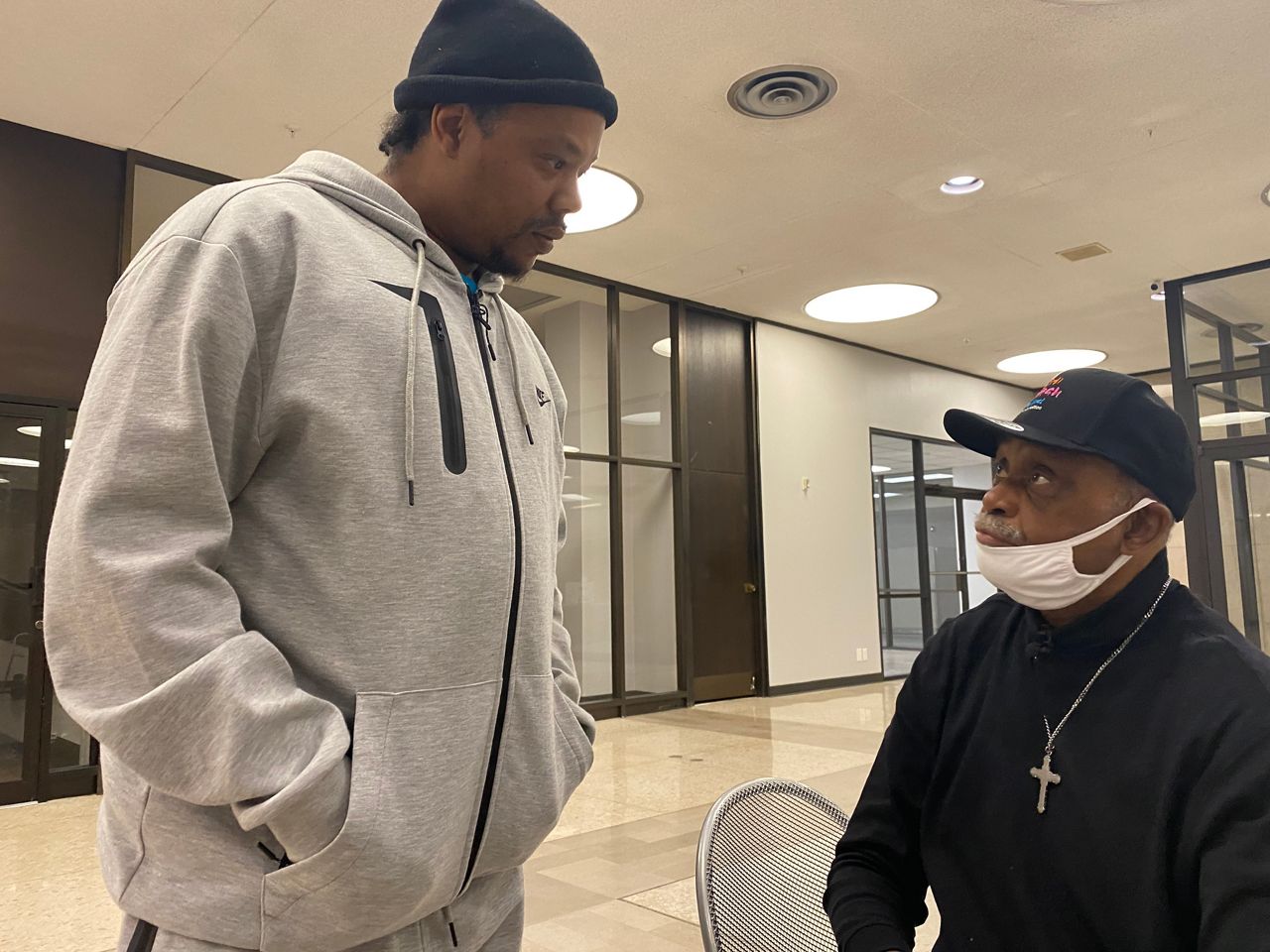DALLAS — Shortly after the death of Dr. Martin Luther King Jr., Rev. Peter Johnson, the youngest member of King's Southern Christian Leadership Conference, made it his priority to continue King's hope for equality in the South. In the fall of 1969, Johnson was sent to Dallas by Martin Luther King Sr. to help promote a film about the life and legacy of his son.
"I protested, I didn't want to come to Dallas, Texas," said Rev. Johnson. "Dallas had a bad, ugly reputation. Dallas, Texas, is the city where Negro leaders and ministers boycotted Dr. King."
Johnson had been residing in Atlanta and thought his trip to Texas would be short-lived. Little did he know, however, racists acts were still blatant and South Dallas homeowners needed his help
"These Negro people started telling me about the fair park homeowners - and would you help us?" said Johnson. "I explained to them I'm under orders, I ain't supposed to get into nothing in this city. I'm on a mission. I can't help you. I'm sorry."
Rev. Johnson had been tasked with promoting the film, King: A Filmed Record... Montgomery to Memphis.
"This movie was going to premiere in 800 cities around the world. Seven-hundred-ninety-nine cities around the world offered theaters and opened up theaters to show Dr. King's movie," said Johnson. "There was only one city on earth who said that n***** won't be showing this movie: the city of Dallas, Texas."

On top of the friction with Dallas film companies, Rev. Johnson also couldn't get the complaints from the South Dallas residents out of his mind. Johnson was known as the dynamite amongst King's pastoral staff. He often got himself into a lot of good trouble in his fight for equality.
After settling the film dispute, and getting thousands to watch the movie in Dallas, Rev. Johnson later returned to the Lone Star State to defend South Dallas homeowners.
"I'm thinking what could I do to put my foot in this city's butt to make them understand that y'all are getting in a fight that you ain't going to win," said Johnson. "I looked at the Cotton Bowl parade and the Cotton Bowl football game was on its way."
On the eve of the New Year's Day Cotton Bowl parade in 1969, Johnson gathered hundreds of people at Mt. Olive Lutheran church to stand in peaceful protest with the Dallas homeowners. Their plan was to block the parade route.
"They came - I knew they would - from as far west as California to as far away as North Carolina. They poured into this city," said Johnson. "Black kids, white kids, Jewish kids, and most of them had been to jail with me."
Reverend Johnson and others stood their ground to organize a mass movement that laid the groundwork for homeowners to meet with city leaders about their property rights, specifically eminent domain.
"You can eat anywhere you want to eat, you can go to school anywhere you want to go to school," said Johnson. "We changed the laws, we did not change the hearts of white America. The disease of racism and bigotry is as prevalent today as it was yesterday."
Johnson says the fight for equality must continue on.
"There are only a handful of us left, but I have so much faith in admiration in this next generation," said Johnson. "These kids who call themselves Black Lives Matter, that's the next generation of freedom fighters."



